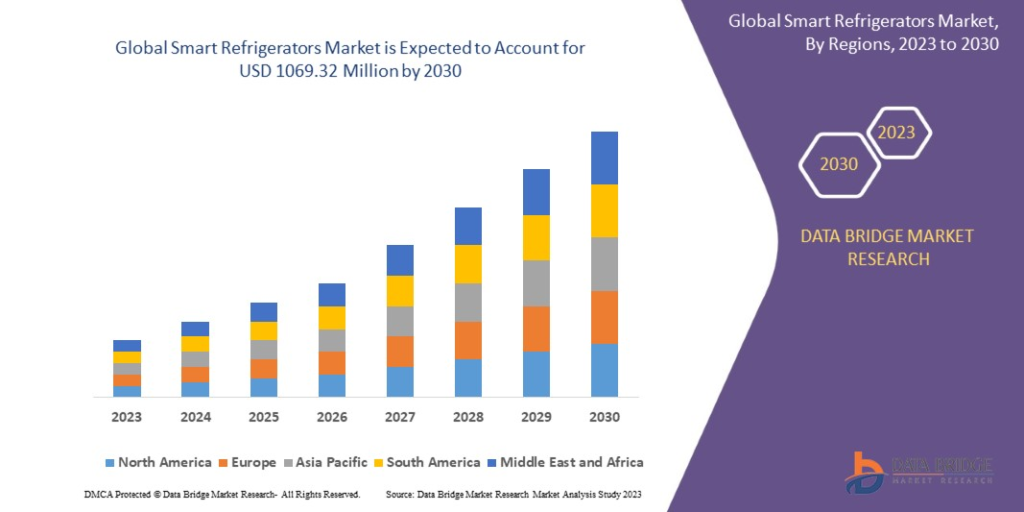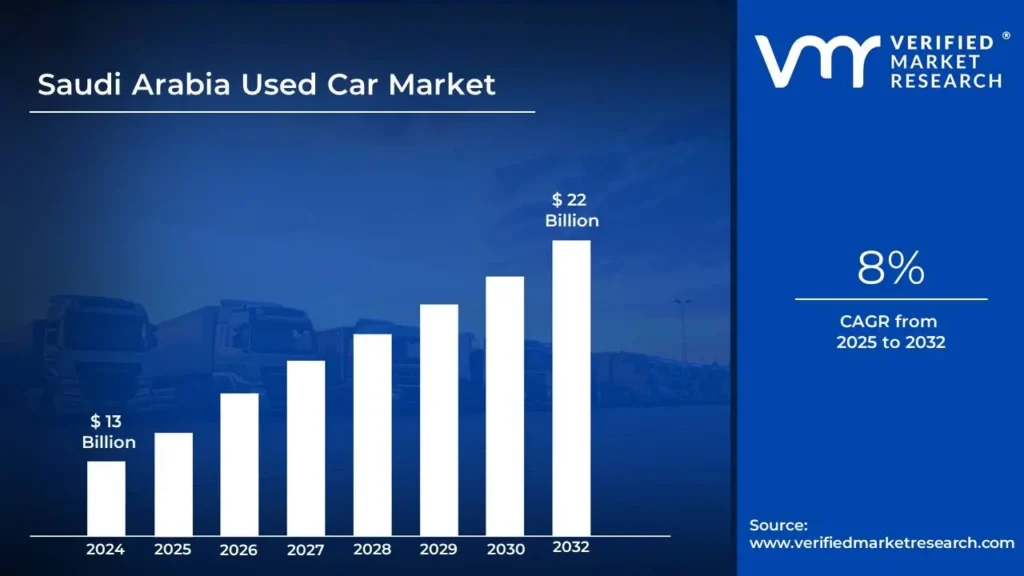The refrigerator market in Saudi Arabia is undergoing a period of unprecedented growth and transformation. Over the past decade, the country has witnessed a steady increase in demand for modern appliances due to rising living standards, urbanization, and technological advancements. Refrigerators are no longer just a household necessity; they have become an integral part of modern lifestyles, offering convenience, efficiency, and even smart functionalities.
As Saudi Arabia moves closer to 2030, the refrigerator industry is poised to experience significant growth. Several factors including evolving consumer preferences, economic policies, and global technological trends are reshaping the market. Manufacturers and investors are closely watching this evolving landscape to capture opportunities, improve product offerings, and expand their market share.
Market Dynamics and Growth Drivers
The Saudi Arabian refrigerator market is driven by a combination of social, economic, and technological factors. Urbanization is a primary catalyst, with cities like Riyadh, Jeddah, and Dammam witnessing rapid population growth. As urban households expand, the demand for modern kitchen appliances, including refrigerators, has surged.
Economic growth and rising disposable incomes have further fueled the market. Consumers are willing to invest in premium and energy-efficient models that offer enhanced functionality, durability, and style. The expansion of the middle class has also contributed to the growing adoption of advanced refrigeration solutions.
Another key driver is the Saudi government’s Vision 2030 initiative, which aims to diversify the economy away from oil dependence. Part of this strategy includes supporting the manufacturing and retail sectors, creating a conducive environment for appliance manufacturers to grow. These government-backed programs encourage foreign investment and promote local production, which can reduce reliance on imports and stimulate innovation.
The market is also influenced by seasonal and climatic conditions. With extremely hot summers, Saudi households and businesses require reliable refrigeration to preserve food and beverages, leading to steady year-round demand.

Technological Innovations Shaping the Industry
Technology is reshaping the refrigerator market in Saudi Arabia. Modern appliances are no longer limited to basic cooling functions; they now offer smart features, energy efficiency, and enhanced usability.
Smart refrigerators with IoT connectivity are gaining popularity. These appliances allow users to monitor temperature settings remotely, track food inventory, and even receive alerts when maintenance is required. AI-driven systems optimize cooling and reduce energy consumption, making them both eco-friendly and cost-effective.
Inverter technology is another significant advancement. Unlike traditional compressors, inverters adjust their speed based on cooling demand, resulting in quieter operation, lower energy bills, and longer appliance life.
Manufacturers are also focusing on design and aesthetics. Sleek, modular refrigerators with customizable compartments are increasingly in demand. For example, French-door refrigerators with separate zones for vegetables, meats, and beverages allow consumers to organize food more efficiently. Advanced water and ice dispensers, smart touch panels, and integrated air filtration systems are additional features attracting tech-savvy buyers.
The emphasis on energy efficiency aligns with global environmental trends. Saudi consumers are increasingly conscious of electricity consumption, and appliances with energy-saving certifications are preferred. Manufacturers are investing in R&D to create appliances that reduce electricity costs without compromising performance.
Consumer Trends and Preferences
Consumer behavior in Saudi Arabia is shifting rapidly, with preferences increasingly leaning toward premium, stylish, and functional appliances. There is a growing demand for refrigerators that not only store food but also enhance kitchen aesthetics.
The size and capacity of refrigerators are becoming crucial decision factors. Large households prefer double-door or multi-door models that provide flexible storage options. Specialty compartments for fruits, vegetables, meat, and dairy are now standard features in high-end models.
Frozen food consumption is rising, driven by urban lifestyles and convenience. As a result, demand for advanced freezing technology has grown. Consumers are looking for refrigerators with quick-freeze functions, adjustable humidity controls, and long-lasting cooling systems.
Brand loyalty is also influencing purchasing decisions. International brands with a reputation for reliability and durability continue to attract buyers, while emerging local brands are gaining traction by offering competitive prices and customizable options.
E-commerce has significantly affected consumer behavior. Buyers now research products online, compare features, read reviews, and make purchases through digital platforms. Online sales channels also offer promotions, extended warranties, and delivery services, enhancing convenience for consumers.
E-Commerce and Distribution Channels
The distribution landscape in Saudi Arabia has evolved considerably, with e-commerce playing a pivotal role in appliance sales. Traditional retail outlets still exist and cater to consumers who prefer in-person shopping, but online platforms are increasingly dominating the market.
E-commerce allows consumers to browse a wide range of refrigerator models, compare specifications, and make informed decisions. Retailers and brands are investing heavily in their online presence, offering features such as virtual product demos, home delivery, and easy installation services.
Digital marketing strategies, including social media campaigns and influencer promotions, are also driving sales. Companies are leveraging online platforms to reach younger, tech-savvy buyers who value convenience and accessibility.
The integration of omnichannel retailing where consumers can interact with brands both online and offline ensures a seamless buying experience. For example, a customer can research a refrigerator online, visit a store to see it physically, and complete the purchase either in-store or online. This approach increases customer satisfaction and strengthens brand loyalty.

Competitive Landscape
The Saudi refrigerator market is highly competitive, featuring a mix of international and local brands. Global players such as LG, Samsung, Whirlpool, and Bosch dominate the premium segment, offering cutting-edge technologies and premium designs. Local brands are targeting budget-conscious consumers with competitive pricing and reliable performance.
Companies are adopting strategic measures to maintain and expand their market share. Product diversification is key, with brands launching multiple models to cater to different consumer needs. Marketing campaigns emphasize durability, energy efficiency, and smart features to differentiate products from competitors.
Strategic partnerships and collaborations are also common. Brands are partnering with local distributors, service providers, and online retailers to enhance reach and accessibility. Loyalty programs, extended warranties, and post-purchase services are additional tactics used to retain customers and build trust.
The competition also drives innovation, pushing companies to continuously improve features, designs, and energy efficiency standards. This benefits consumers, who enjoy a wider range of options and better technology at competitive prices.
Challenges and Opportunities
While the market outlook is positive, certain challenges exist. The industry relies heavily on imports, which can lead to supply chain disruptions and higher costs during global crises. Import regulations and tariffs also influence pricing and availability.
However, these challenges present opportunities for growth. Local manufacturing initiatives are gaining momentum, encouraged by government policies under Vision 2030. Investing in domestic production reduces dependency on imports, lowers costs, and creates jobs.
The growing awareness of environmental sustainability is another opportunity. Energy-efficient appliances and eco-friendly refrigerants are gaining popularity, giving brands a chance to differentiate themselves while contributing to global climate goals.
Emerging technologies, including smart and connected appliances, offer vast opportunities for innovation. Companies that invest in R&D and adapt quickly to consumer preferences will be best positioned to capitalize on the market’s growth potential.
Future Outlook and Forecast to 2030
The Saudi refrigerator market is expected to witness sustained growth through 2030. The combination of urbanization, rising incomes, technological innovation, and government support is creating a favorable environment for manufacturers and investors alike.
Smart refrigerators, modular designs, and energy-efficient models will likely dominate the market. The adoption of IoT, AI, and inverter technologies will continue to enhance functionality and sustainability. Consumers will increasingly demand appliances that combine convenience, durability, and aesthetics.
E-commerce will remain a major driver, and brands will need to enhance their digital strategies to reach a wider audience. Online reviews, social media engagement, and personalized marketing will shape consumer decisions.
The competitive landscape will intensify as both international and local brands vie for market share. Companies that offer value-added services, innovative products, and superior customer experiences will emerge as market leaders.
Government policies promoting domestic manufacturing, sustainable practices, and technological innovation will further strengthen the industry. By 2030, Saudi Arabia is expected to be a highly dynamic and technologically advanced refrigerator market, presenting numerous opportunities for investors, manufacturers, and consumers alike.
Conclusion
Saudi Arabia’s refrigerator market is entering a phase of transformative growth. Driven by technological advancements, changing consumer preferences, economic diversification, and government initiatives, the industry offers immense opportunities. Consumers are seeking smarter, larger, and more energy-efficient refrigerators, while companies are innovating to meet these demands.
The market’s growth trajectory is expected to continue through 2030, making it a lucrative and dynamic space for manufacturers, investors, and retailers. By focusing on innovation, sustainability, and consumer-centric strategies, stakeholders can capitalize on the tremendous potential of the Saudi refrigerator market and contribute to the evolution of modern households and businesses across the Kingdom.
Do follow Gulf Magazine on Instagram.
Also Read – Why Gulf Tourists Are Flocking to This Charming Polish Town This Summer



